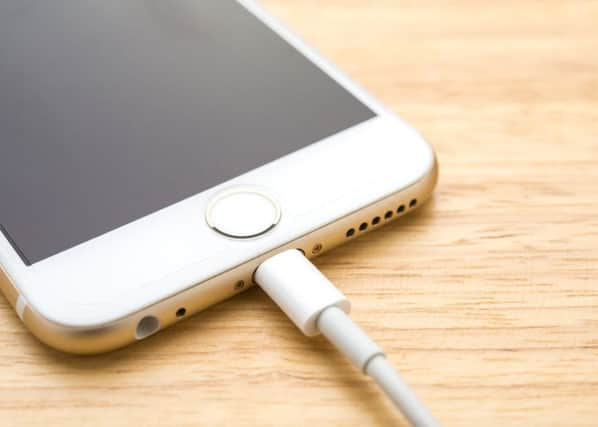New discovery could lead to longer-lasting batteries


A leading scientist has found new catalyst materials for lithium-air batteries which could make them last five times longer, jump-starting efforts to expand battery capacity.
The development could expand the range of electric cars to 400 miles.
Advertisement
Hide AdAdvertisement
Hide AdProfessor Kyeongjae Cho, of the University of Texas at Dallas, said: “There’s huge promise in lithium-air batteries.
“However, despite the aggressive research being done by groups all over the world, those promises are not being delivered in real life, So this is very exciting progress.
“Graduate student Yongping Zheng and our collaboration team have demonstrated this problem can be solved.
“Hopefully, this discovery will revitalise research in this area and create momentum for further development.”
Advertisement
Hide AdAdvertisement
Hide AdLithium-air (or lithium-oxygen) batteries “breathe” oxygen from the air to power the chemical reactions that release electricity, rather than storing an oxidiser internally like lithium-ion batteries do.
Because of this, lithium-air batteries boast an energy density comparable to gasoline - with theoretical energy densities as much as 10 times that of current lithium-ion batteries, giving them tremendous potential for storage of renewable energy, particularly in applications such as mobile devices and electric cars.
Prof Cho said that, for example, at one-fifth the cost and weight of those presently on the market, a lithium-air battery would allow an electric car to drive 400 miles on a single charge and a mobile phone to last a week without recharging.
But he said practical attempts to increase lithium-air battery capacity so far has not yielded great results, despite efforts from major corporations and universities.
Advertisement
Hide AdAdvertisement
Hide AdUntil now, attempts have resulted in low efficiency and poor rate performance, instability and unwanted chemical reactions.
Prof Cho and Zheng have introduced new research that focuses on the electrolyte catalysts inside the battery, which, when combined with oxygen, create chemical reactions that create battery capacity.
They said soluble-type catalysts possess “significant” advantages over conventional solid catalysts, generally exhibiting much higher efficiency. In particular, they found that only certain organic materials can be utilized as a soluble catalyst.
Based on that background, Prof Cho and Zheng have collaborated with researchers at Seoul National University in South Korea to create a new catalyst for the lithium-air battery called dimethylphenazine, which possesses higher stability and increased voltage efficiency.
Advertisement
Hide AdAdvertisement
Hide AdZheng said: “The catalyst should enable the lithium-air battery to become a more practical energy storage solution.”
Prof Cho said his catalyst research should open the door to additional advances in technology.
But he warned it could take five to 10 years before the research translates into new batteries that can be used in consumer devices and electric vehicles.
Prof Cho said he has been providing research updates to car manufacturers and telecommunications companies, and said there has been interest in his studies.
Advertisement
Hide AdAdvertisement
Hide AdHe added: “Automobile and mobile device batteries are facing serious challenges because they need higher capacity.
“This is a major step. Hopefully it will revitalise the interest in lithium-air battery research, creating momentum that can make this practical, rather than just an academic research study.”
The research was published in the journal Nature Energy.